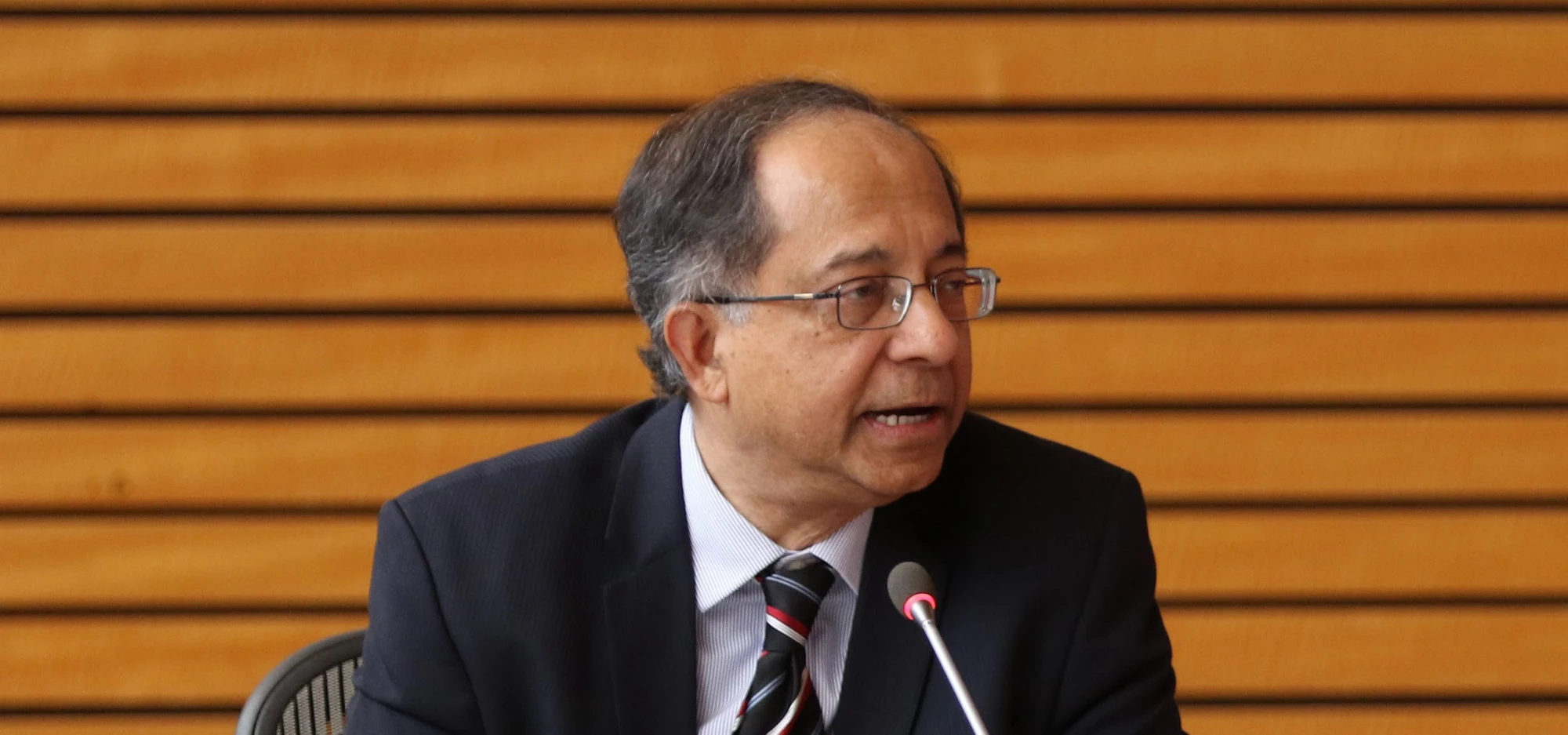The State of the Global Economy
[Based on the opening remarks made at the Chief Economists’ Roundtable on “Growth and Inclusion in Turbulent Times”]
It is time for the annual Spring Meetings. Many of the world’s finance and development ministers, along with business and civil society leaders, are here is Washington and have been meeting with us at the World Bank this week to discuss what we can do to rise up to these challenging times. Most conversations have come to land on two important questions, namely: What is happening around the world in different regions? And: what can we do to stem the slowdown and disunity around the right policy way ahead?
The global economy has hit a difficult patch. We at the World Bank have had to lower our global growth forecast from 2.9%, as recently as January, to 2.5%. There was pressure on us in January that we were being too pessimistic when we put out the forecast of 2.9%. In retrospect, we were not pessimistic enough.
Let me clarify, this is a matter of concern but not a crisis. It is, instead, a festering wound from the earlier sub-prime crisis and the sovereign debt crisis that is refusing to heal. It is not a situation that should give us sleepless nights but could cause a dull, low-grade pain through the night.
It is a constellation of forces that has led to this predicament. The most recent challenge comes from the low commodity prices which is causing great hardship on commodity exporters and inflicting adjustment costs on everybody, especially the corporations and firms that had invested in commodities and, in particular, oil.
My own expectation is that, barring major political turmoil in oil-exporting regions, oil prices will remain in the range 40 to 55 dollars per barrel in the near future, for a couple of years. The arrival of Iranian oil and the potential increase in shale oil supply as soon as prices rise sufficiently sets an effective ceiling on oil prices. These forces are unlikely to go away soon.
I expect that the benefits of low commodity prices will eventually kick in and the global economy will turn around and do better. This could begin as early as next year. But there is a period of difficult adjustment ahead.
While there isn’t too much we can do about these natural processes and their attendant problems, there is a global policy problem that we can try to solve. The big policy lesson of our time is that the world of today is too globalized for disparate, inward-looking policies to be effective. We have seen the stresses of uncoordinated economic policy in recent statements on how the US Federal Reserve has had to go slow on rate hikes. This is not because of the US economy but the global situation.
The Fed is right in stressing this. It seems reasonable to argue that with 6 major central banks having gone for negative interest rates, the US Fed cannot alone pull in a different direction. This stresses the need for better policy coordination.
And speaking of negative interest rates, we have to admit, we do not fully understand their implications. As policy, this may work when it is one or two countries using it for a short duration, but when a whole host of nations use it, there is a growing feeling that it does not work. No country gets an exchange rate advantage and they all get the effect of a perverse savings behavior.
Let me explain the latter. It is commonly believed that, as interest rates rise, people save more—they park their money in banks, in bonds, and in savings account. This is another way of saying that, when interest rates drop, they pull their money out from savings and divert it to consumption. What this misses out on is that this is true within a reasonable range of interest rates. When interest rates go sufficiently low, a different logic sets in—a worry about what will happen when they retire. In short, when interest rates go very low, the pressure builds up to shore up savings for old age or simply when one is out of work.
Suppose a poor person saves $6,716 each year. If the interest rate is 4%, she will get to a saving of $200,000 at the time of her retirement 20 years later. That is not a lot of money for the post retirement years. So when interest rate drops, say to minus ½%, instead of thinking it is not worth saving, she will now be worried about her retirement. If she treats 200,000 dollars at retirement as a target, she will have to save more, in fact, $10,483 each year.
In brief, if a person’s income is 20,000 dollars per annum, and he wants to have a saving of $200,000 at the end of 20 years, he has to save 34% of his income if interest is 4%; and 52% if interest is minus ½%.
The supply curve of savings is not everywhere upward-sloping, as we were taught in school, but more like a fishhook, ready to catch economies in a low-growth trap.
With interest rates going as low as they are now, it is likely that this trap is getting set, causing consumption to be cut back in favor of greater savings, and this is what is prolonging the slow growth in Japan, in Europe and many other parts of the world.
In short, we need to re-think the ubiquity of negative interest rates, and we need better policy coordination. For this reason, I support the IMF line that Brexit will be unfortunate. It will disrupt one more link of policy coordination—this one within Europe—and, as such, will be bad for both Europe and more so the UK.
One more challenge that we are all facing comes from the otherwise-welcome rise of technology, both labor saving and labor linking, which makes it possible for workers in emerging economies to work for firms and organizations in faraway nations. This is causing wages to decline and job creation to be anemic especially in advanced economies. Among emerging economies, the ones that are able to maintain a stable business ethos and manage their policies reasonably will grow.
The diverse performance within the BRICS countries talks to this. India is growing above 7%, China just below 7%, South Africa is growing but very slowly, while Russia and Brazil are witnessing the pain of declining GDP. Divergence of this kind has rarely been seen. The crying need in emerging economies and advanced economies is that of innovative policies for creating jobs and boosting the incomes of workers. This requires data, research, determination and above all innovative thinking.



Join the Conversation